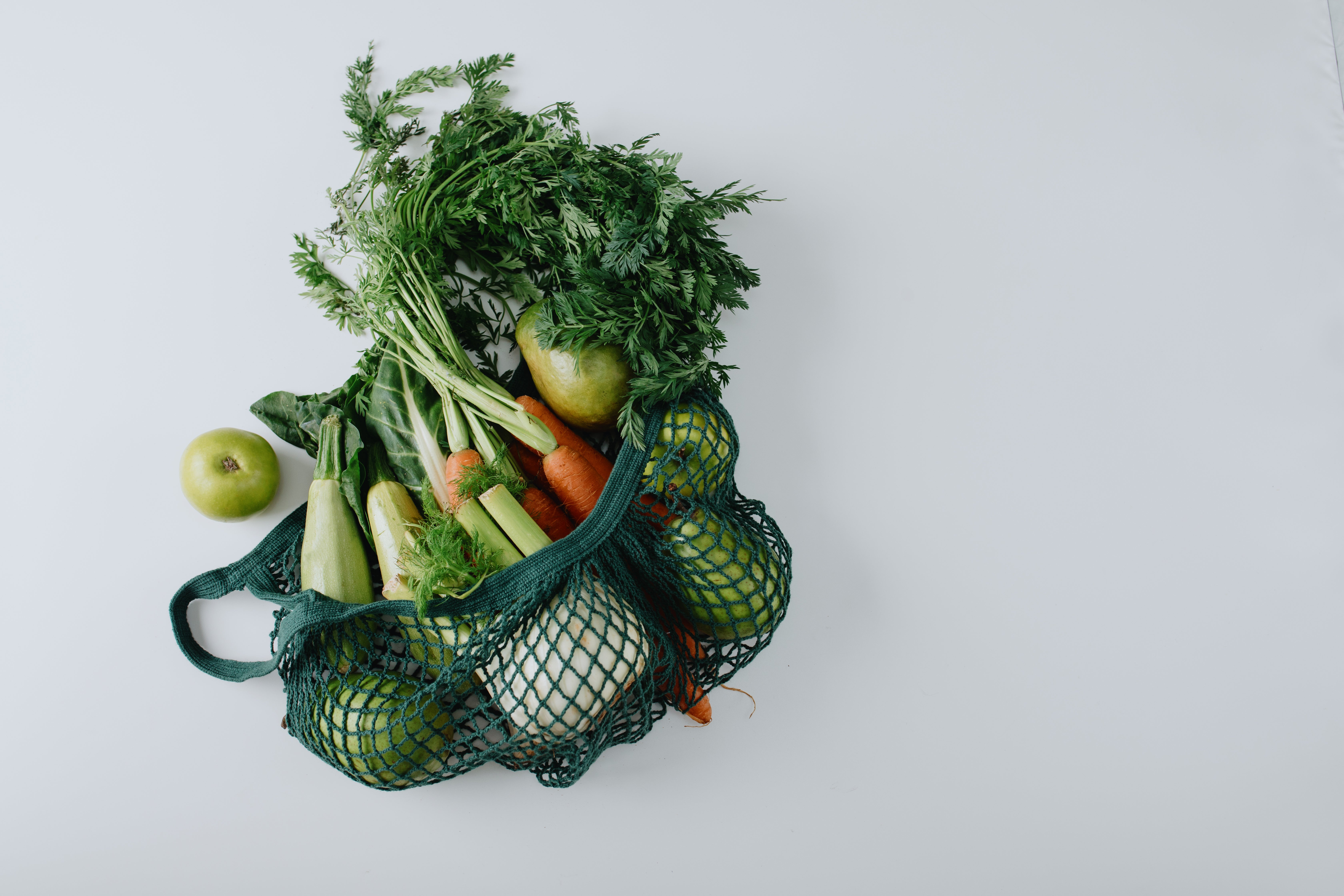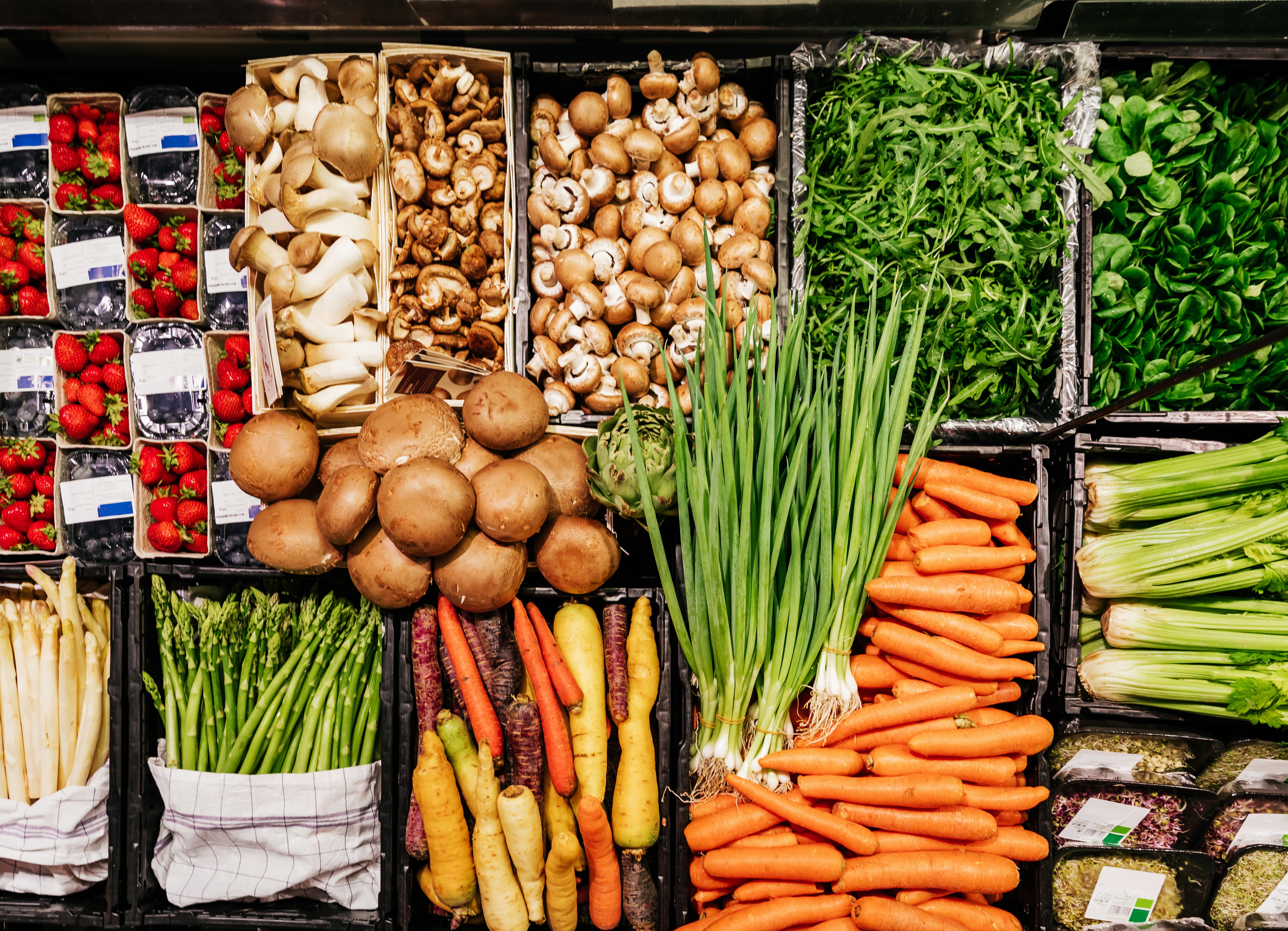Seasonal eating isn’t the same as going local - knowing the difference is vital
We all know about eating fewer animal products, or buying locally, but what about seasonality? Sophie Gallagher asks why consumers should care that you can’t naturally grow strawberries in a British winter


Fancy a bowl of fresh British strawberries for a winter breakfast and a crunchy kale salad in the height of summer? Not if you’re eating seasonally you don’t. The UK’s northern-hemisphere weather maybe ever-warming due to the global climate crisis (the last decade was the hottest on record according to the Met Office and Nasa), but that doesn’t mean we’re quite ready to replicate the growing seasons of nations on the other side of the world.
Unless you want miles of plastic polytunnels across the horticultural landscape, or artificial heating and light to encourage seeds to grow rather than wilt away, the British growing season is naturally limited.
In spite of this, walk into any of the major supermarkets across the nation and you wouldn’t know, for example, that asparagus can only be grown in the UK for May and June, or that pears are only ready to be eaten in September. In our big-name chains, consumers have been indulged with produce from every corner of the world, 365 days a year.
Items will often be labelled in small print with their country of origin, and perhaps are given some promotion when there is surplus at certain times of year, but shoppers are not invited to only buy the British produce that is in season or encouraged to dismiss those that are not, and instead are offered whatever our baskets (or stomachs) desire. Shipped from the far reaches of the map.
Farmers markets and independent shops may do better at selling local but local isn’t always synonymous with low carbon if it is still out of season and requires artificial heating, light or shelters. And with data suggesting up to 97 per cent of Brits shop in household name supermarkets, it is a clear a failure to sell seasonally.
Yet, polls suggest Brits do want to buy more homegrown (more than half of UK adults indicated they would buy more English produce post-Brexit). So what can be done on an individual level to eat more seasonally and why is it so important that we do so?
Why is it important to eat seasonally?
It is well-documented that switching to buying locally could help mitigate some of the environmental problems caused by transporting food by air, for example, but that doesn’t mean that a British grown salad leaf is going to be preferable if it’s grown under plastic because it is out of season. This is why it is important to understand seasonality.
Timothy Lang, professor of food policy at City University and author of Feeding Britain: Our Food Problems And How to Fix Them, tells The Independent: “We know from the science, that the carbon footprint from an unseasonal strawberry, grown under plastic in a northern country, is far more intensive in resources than a strawberry grown out of doors in mid summer.”
Rob Moore from Behaviour Change, a not-for-profit social enterprise, agrees: “Growing fruit and vegetables in season requires lower levels of artificial inputs like heating, lighting, pesticides and fertilisers than at other times of the year and so has a lower environmental impact.”
Dave Reay, at the University of Edinburgh, found that growing lettuce at home in the wrong season was worse in carbon contributions than flying it in from Europe because of the conditions required to beat the wrong climate. Professor Reay said in his book Climate-Smart Food: “If you just assume everything closer to you is better, so if you’re thinking these blueberries or cucumber from Holland in January will be low carbon, they won’t be. It’s going to be intensive production with a high carbon footprint.”
Moore says that the lack of public understanding of seasonality puts us out of sync with nature: “While it’s easy to enjoy blueberries with your breakfast in winter, being accustomed to buying whatever we want, whenever we want, means we are becoming disconnected from our food and its relationship with nature.” We need to learn to “eat the right thing at the right time”.
And not only will it help reduce carbon footprints but what we eat will be of better quality and a better price.
Moore says: “Ask any chef and they’ll tell you that fruit and veg are at their freshest and tastiest when they’ve just been picked … [and] with reduced transportation and production costs for the growers, seasonal fruit and veg will have less of an impact on your grocery bills too.” Moore says a basket can be up to a third cheaper than out of season.

So how do we do it?
Dr Lang says that for people to try and eat seasonally it is going to be a “great difficulty” with the current food setup for a number of reasons. “There is no labelling [on produce] that tells people what is seasonal, there is no information in supermarkets, the companies try not to give seasonal information, so I’m fairly sober about [the prospect].”
The only modern European government to give official guidelines on eating seasonally was Sweden in 2009, says Lang. But that information was later retracted and replaced with “cultural advice” instead. Lang says other governments like in Italy have been hesitant to suggest seasonal eating because that the population is already familiar with such concepts.
“In Britain we have a different culture, Britain is trying to learn what is a good food culture when it hasn’t had much support from governments to do so,” he says. “We should also be instructing supermarkets to say what is in season ... the ideal would be you’d go into a shop and have seasonal stuff and then out of season, or point of sale schemes.”
But while we wait for government-mandated instructions on such a seasonal food policy, what else can we do?
Become a grower (or have the knowledge of one)
Dr Lang says the best way for people to know themselves is to be a gardener or grower, and to learn what grows when, equipping themselves with the information to negate poorly informed supermarket displays. “Unless you’re a grower you won’t really know it,” he says.
Download a seasonal list
While you’re learning to become a gardener or grower, and still trying to do your part, the best way to remind yourself of what you should be buying when you head out to the shops is to have a visual prompt. You can use the Eat Seasonably poster, available to download here.
Or the Vegetarian Society has created a helpful list of all the items you can buy in season, which is available here.
Join our commenting forum
Join thought-provoking conversations, follow other Independent readers and see their replies
Comments
Bookmark popover
Removed from bookmarks